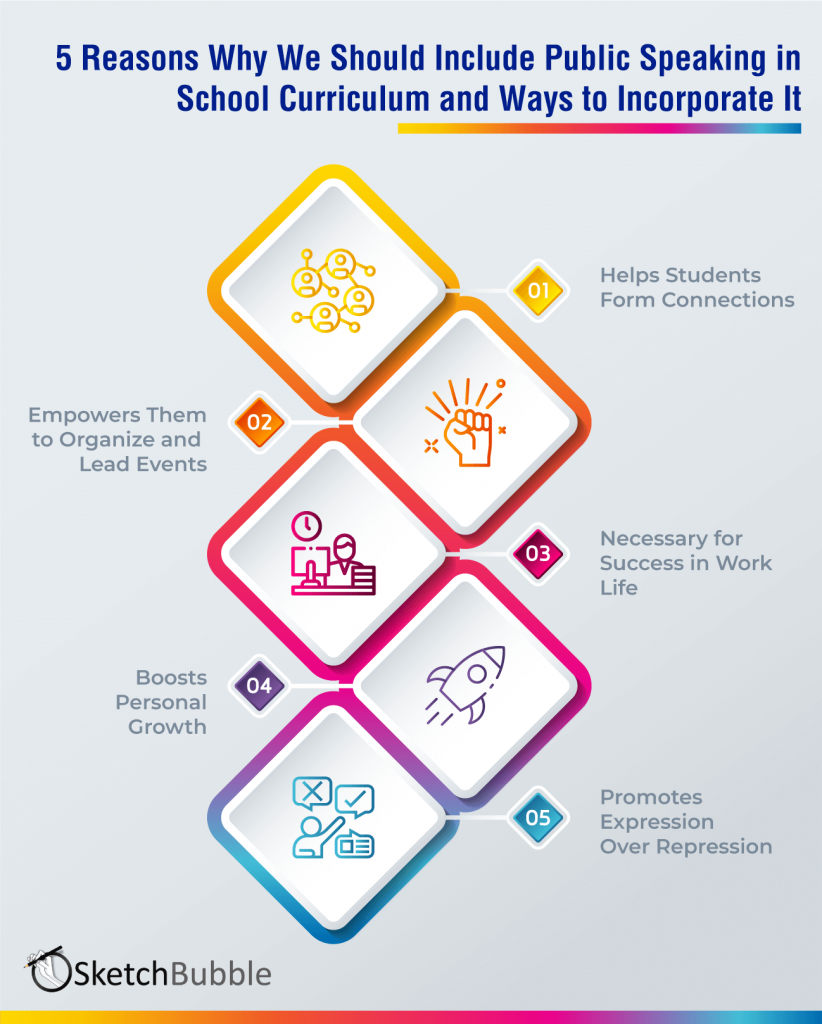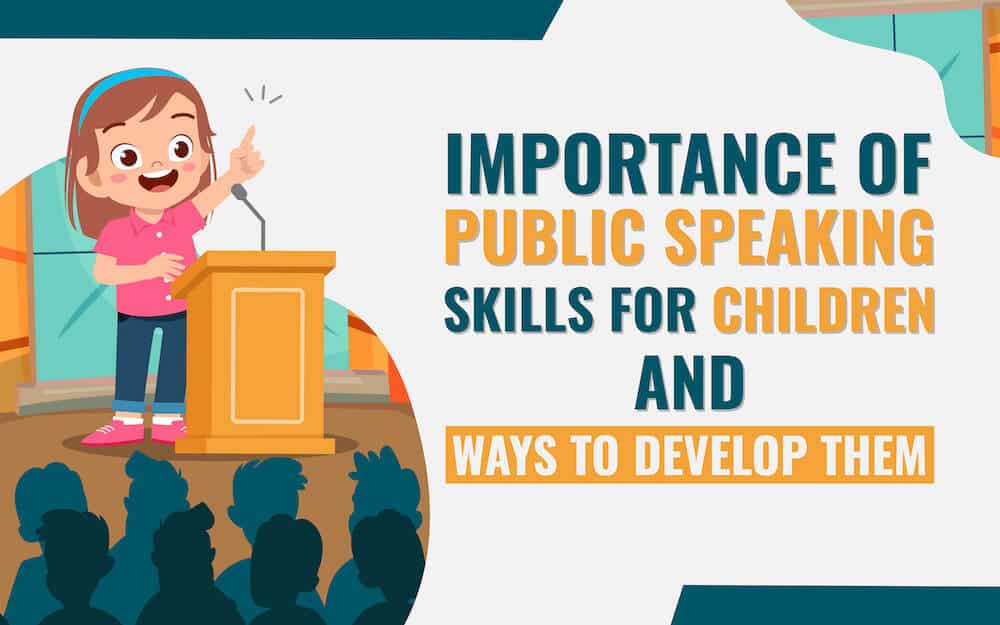5 Reasons Why We Should Include Public Speaking in School Curriculum and Ways to Incorporate It

Have you ever noticed the difference between those who sit in the audience and those who stay up on the stage and conduct events? It is as simple as it could be – the ones on stage were taught how to confront gatherings, speak in front of public, and anchor events when they were in school.
Let us consider another example of how one public speech started a movement – Greta Thunberg, the fifteen-year-old climate activist who started a revolution for environmental activism, had raised her voice. She was not afraid to speak at the United Nations Conference and confront an entire league of industrialists, politicians, and environmentalists to work upon the crisis. She not only delivered thirteen immensely powerful speeches, but her oration skills transformed the way people look at the climate crisis today.
All of this sums up one thing- had she not been influenced by the power of public speaking, she would not have been able to stand up to this cause. And where does a fifteen-year-old learn the skill from? Nowhere but her/his school; because that is where the seed is planted.
Thus, it is crucial to teach young children the power of persuasive speaking so that we raise an entire generation of bold, confident, and expressive young leaders, entrepreneurs, and human beings.
Let us look at some reasons why public speaking is so crucial for younger generations and must be taught in schools.
1. Helps Students Form Connections
The most important task for a young adult is to network with the right people and Public Speaking is the #1 way to network and build relationships. However, some of them find it extremely uncomfortable to approach others and start a conversation. This refrains them from availing the opportunity to form an association with somebody who could help them grow.
Thus, educating the students about the importance of such things and how they could get rid of hesitation and communicate with people is necessary for every institution.
2. Empowers Them to Organize and Lead Events
Events of significance need to be led by powerful minds – those who do not hesitate to speak for their cause and amplify it; so that when they are confronted with opposition, they can build a spine and speak for themselves and their organization.
For instance, in 1942, Mahatma Gandhi’s address on Quit India Movement not only ignited nationalism and patriotism in the heart of every Indian but also helped the Indian National Congress to pass the famous Quit India Resolution that played a major role in freeing the country in 1947. Therefore, one powerful address by a man, who wasn’t too macho to look at, changed the politics of the entire nation.
This seed of empowerment and enthusiasm of oration is planted in a child when he/she is in school.
3. Necessary for Success in Work Life
Every workspace needs you to present yourself. If you don’t speak up, you’ll be pushed in a corner. It doesn’t matter if you are in the editorials, marketing, PR, or if you own a startup, you will always come across situations where either you explain it in a minute, or you don’t get what you want. Be it for presentations or for pitches, you will be given chances to speak every now and then, and if you don’t use them right, you may lose what you’ve already got.
Speaking in a room full of people, who are wiser, stronger, more experienced than you, requires the practice of ages, Here is how to speak up in a meeting . And this can be aced easily if one has been in a habit since their childhood.
4. Boosts Personal Growth
Nothing gives you more confidence than delivering a compelling speech because that is when you know that your words have power and can change courses in a minute. It not only strengthens your esteem but also motivates you to do better.
5. Promotes Expression Over Repression
Shouldering the stresses of an age that considers suppressing emotions to be the new ‘cool,’ the habit of expression can change the way it is looked upon. Instead of being seen as a taboo, it can pave paths to be looked upon as strengthening and celebrating human emotions.

Ways Schools Can Incorporate Public Speaking
1. Conducting Everyday Events
Running five-minute activities like daily news reading, speeches, poem recitation, declamation, extempore, and debates can gradually help students overcome their fear of speech and audience. It can educate them while molding their personalities correctly.
2. Scheduling Oration Classes
Having classes where dealing with crowd anxiety and stage fright are taught can create safe spaces for the youth to break out of their comfort zones. It can give them the much-needed push to embark on their journey of public speaking.
3. Assigning Tasks
Allotting presentations, group activities, and projects that involve presenting to classmates can be a way of creating a culture for public addresses. This will not only prepare a child for the future but will also help him/her encounter any present aversions and apprehensions.
4. By Being an Example
Here is a personal experience. When I was in school, I remember waiting to listen to my school principal on weekly assemblies because of the way she spoke; she touched hearts and knocked our minds. Not only her but also the Director of my school would deliver long speeches, which we would look forward to because his stories always created an impact. I grew up listening to powerful speeches from my own school, and that inspired me to become a good orator. From anchoring to delivering gratitude notes, I never left an opportunity to be on stage. And that happened because I saw two extremely wonderful examples who set a standard to what powerful oration truly looks like.
Thus, be an example to your students, and they will never fail you.
Conclusion
The future of every child lies in the hands of the institution he/she belongs to. It is through their culture, environment, and examples that they learn to form habits that can either make or break their lives. Check 7 Presentation tips to help students win big
Thus, introducing such themes to the root of the education system would change the lives of millions of students who can then create platforms, lead revolutions, start businesses, and ace each one of them through the skills they were taught in school.



